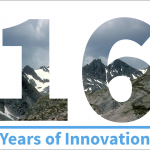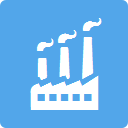GRI G4 & the Sustainability Reporting Competitive Advantage
A recent hot topic in the arena of corporate sustainability is the new Global Reporting Initiative (GRI) G4 guidelines that were just released. GRI is a network-based organization that provides all companies from around the world with a comprehensive and voluntary sustainability reporting framework. It’s no surprise this new G4 milestone is receiving such publicity, given how popular sustainability reporting has become today, and the fact that this is the first major overhaul to the GRI guidelines since the G3 version in 2006.
One main difference is that the new guidelines place a strong focus on materiality- more explicitly requiring that organizations reporting efforts be centered on impacts, risks, and opportunities. While this idea is not entirely new, the G3/G3.1 framework did not have this as such a specific and strong focus.
The new GRI framework also attempts to quell the problem of companies feeling overwhelmed by the number of options provided. G4 draws a line between requirements and guidance; so companies understand the differences and do not feel compelled to report on every single metric described. The G4 framework offers many other updates and changes, a few of which include up-to-date disclosures on governance, ethics and integrity, supply chain, anti-corruption and GHG emissions.
While the G4 framework is an important milestone for sustainability reporting, there are various other guidelines being implemented around the world as well; for voluntary, as well as financial and mandatory reporting. It is clear that corporate sustainability has become a much more recognized business approach as of late, and that including it as part of a company’s identity can both ensure environmental responsibility and enforce a positive public image. However, while some organizations fully embrace the benefits of being transparent about their ‘green’ strategy, some others may be just starting to dip their toes into the water, and quite a lot remain stagnant and unwilling, or perhaps ignorant on how to take the plunge.
No matter what category a company falls in, it’s important to remember that employing the help of a sustainability management software application, such as Locus’ ePortal Resource Management Module (RMM), can be a great advantage in reaching your sustainable goals. Having the necessary tools to create powerful reports and track KPIs such as resource consumption, greenhouse gas emissions, and water and wastewater usage across the enterprise can ensure reporting success. Also, the information you collect and organize during the reporting process will help to lower your operating costs by reducing resource consumption.
Whatever you do, don’t wait much longer- the time to reap the benefits of the sustainability reporting competitive advantage is now.




Leave a Reply
Want to join the discussion?Feel free to contribute!